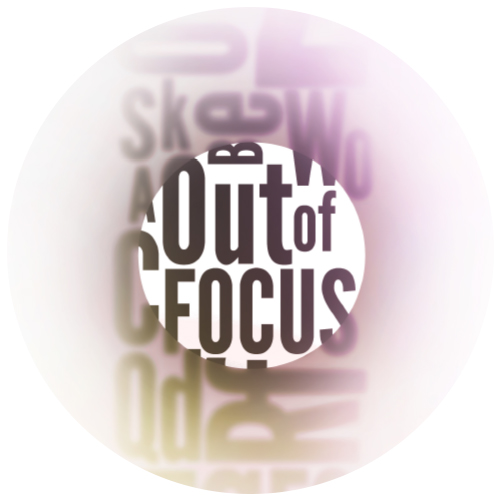Out of Focus: Afterword
| December 3, 2024A tzaddik falls seven times and gets up. And that, my fellow ADHD sufferers, is really the key to overcoming ADHD

A close friend of mine who also has ADHD commented to me that my serial paints too rosy a picture of ADHD. I’d made it sound like the struggles can easily be overcome by just following certain prescriptions, she said. Put on an alarm to remind you to make dinner, and you’ll have dinner prepared in no time. Go for a walk with your husband every night and soon you’ll be best friends.
I agreed with her, and I disagreed with her.
As in, the tips and tricks and ideas work best if my new systems are consistently adhered to: Two loads of laundry a day will make the laundry piles go away. Stick to a menu, and the shopping list and what to make for supper every night will follow.
The problem lies in the consistent application. Because even if I have the best systems, they’re systems built on the stilts of my ADHD: my tendency to procrastinate and lose focus, my difficulty prioritizing. And stilts are pretty wobbly — they’re fragile foundations for the big enterprise that is a large household.
Sheva yipol tzaddik v’kam. A tzaddik falls seven times and gets up. And that, my fellow ADHD sufferers, is really the key to overcoming ADHD. Knowing that you’re going to mess up over and over and over again — even though you know that tomorrow night is schnitzel night, you’ll still forget to take the cutlets out of the freezer; you’ll hear your alarm ringing and won’t be able to put down the book you’re reading; although the secretary called in the morning to confirm your dentist appointment, come the afternoon and you’ll forget. And life will happen, too, good things and challenging things. You’ll make a simchah, and that will throw you off. It will be Pesach. A child will be home for a week with strep. There will be a snow day.
What I’ve learned is to promise myself that come what may, I won’t stay on the floor. I pledge to get up, brush the chunks of mud or snowflakes off my skirt, and forge onward. It will take a week to get back to things. There will be chaos. But each time, it goes a little faster. A little better. Managing is a little easier.
All spiritual growth, especially for people with ADHD, is a matter of five steps forward, four steps back. Sometimes with ADHD, it’s five steps forward, six steps back. But then we’ll skip a step or two and be at seven steps forward in no time.
We’ll never be perfect. Because for those of us with ADHD, striving for perfection is the antithesis to real growth. We’ll be tempted to do everything perfectly. We’ll be flooded with dopamine in anticipation of the perfectly clean and organized living room. And we’ll have the motivation to keep it up for a week or two. And then one day, we won’t have the energy. We’ll give up on a clean living room altogether. And before long, we won’t be able to see the couch.
Instead, let’s aim to clean the living room for 15 minutes every night. And if one night you just can’t be bothered, don’t berate yourself for being a hopeless slob who can’t succeed at anything. Just skip that night, and maybe the next. And on the third night, because you’ve haven’t self-flagellated, you just might find that you’re motivated by the soon to be irreversible mess — and you do it.
And thus, my fellow ADHD sufferers, slowly, very, very slowly, punctuated by periods of frustration and regression, your life will change.
THE END
Here is a list of resources that really helped me:
additudemag.com — this has so many evidence-based articles about ADHD, with some specifically about ADHD in women, which were really useful.
The House That Cleans Itself: Creative Solutions for a Clean and Orderly House in Less Time Than You Can Imagine! by Mindy Starns Clark. This book was great because as well as being very practical for people to whom keeping house doesn’t come naturally, it was also very funny, and really made the struggle feel normal.
Sink Reflections by Marla Cilley. This is FlyLady’s book. She also has a website and a group you can join. Her book is full of really smart and practical tips. Its biggest draw, in my humble opinion, is that it introduces the idea of getting as much done as you can in 15 minutes, which is revolutionary. Its drawback is that it’s written for people with a large house, have two teenage children, and don’t keep Shabbos, so a lot isn’t realistic for a frum mother of a large family.
How to Keep House While Drowning: A Gentle Approach to Cleaning and Organizing by KC Davis. There are a few books with this title, but this is the one that really spoke to me. Aside from being very practical, it had such a nonjudgmental and validating tone.
Time Management from the Inside Out and Organizing from the Inside Out by Julie Morgenstern. These were amazing because they take into consideration that there are different people with different styles that work for them.
The Clutter Connection: How Your Personality Type Determines Why You Organize the Way You Do by Cassandra Aarssen. I really liked this. Aarssen advises people to organize their homes according to their natures. Most home organizers say you should keep everything behind closed doors; Aarsen believes that some people need things to be clearly visible in clear boxes or on open shelves, because if it’s behind closed doors, they’ll forget it exists. That’s a win for people with ADHD and poor working memory.
How Does She Manage? by Yael Wiesner. This book was a lifesaver to me for so many reasons. The first is because it’s written by a frum woman for frum women. Second, because the way it’s written, with women having a conversation between each other, is so engaging and refreshing. And third, it acknowledges that there are different types of women and different things that work for them, which was revolutionary for frum literature on homemaking. I also did her course, which really, really helped me more than anything else on this list. It taught me the principle of simplifying things so you’ll have success; was designed specifically for frum women with children living in small spaces, making almost every single thing she says so relevant; and was so detailed, it covered every single aspect of homemaking from storing toys to making Shabbos to doing laundry.
The ADHD Effect on Marriage: Understand and Rebuild Your Relationship in Six Steps by Melissa Orlov. I said enough about this in chapter five.
(Originally featured in Family First, Issue 921)
Oops! We could not locate your form.


